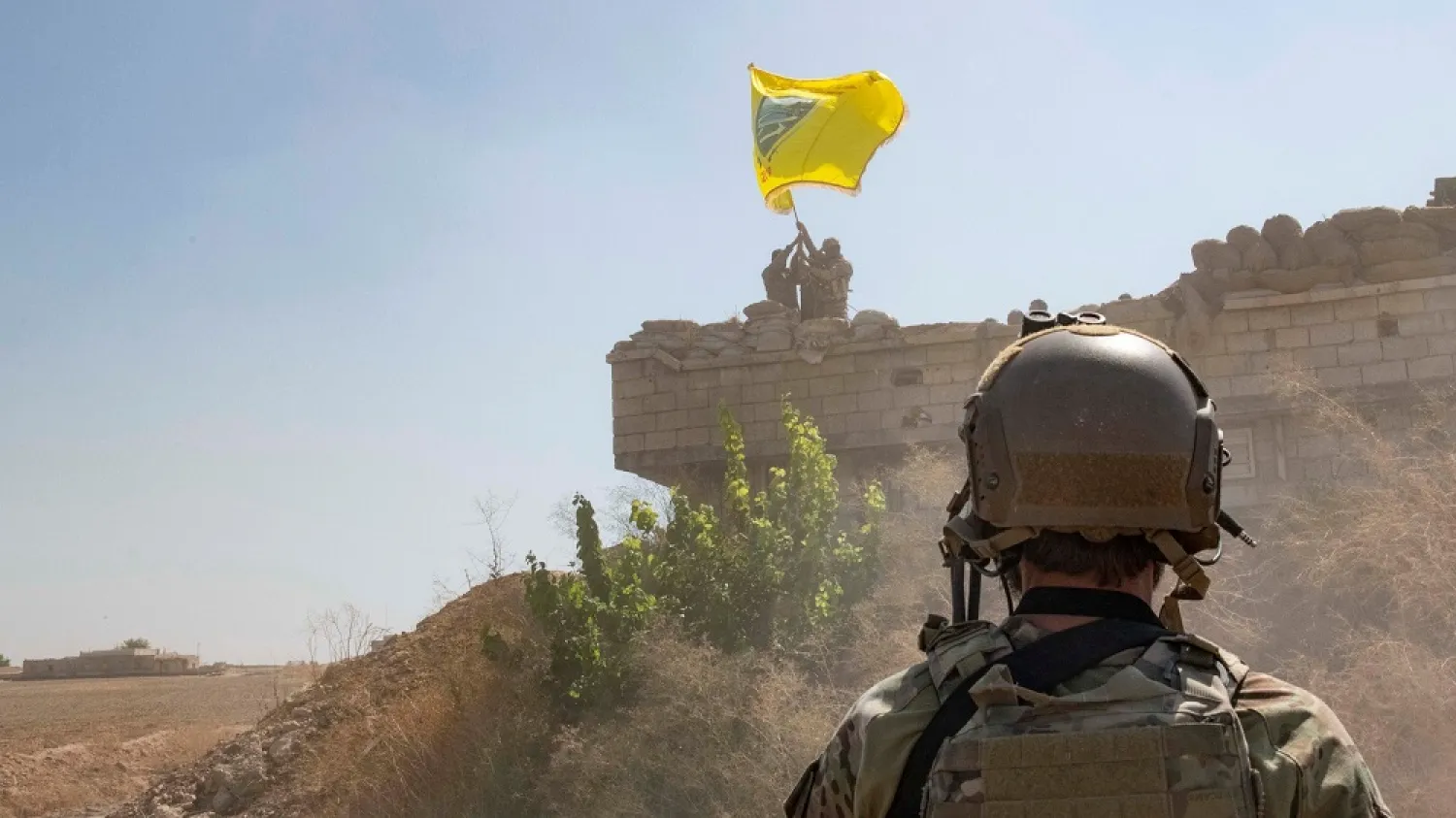The Syrian Democratic Forces (SDF), with American backing, can negotiate with Damascus over the establishment of autonomous political rule in the region east of the Euphrates River. This should not, however, be a repeat of the “disastrous” independence referendum that was held in the Iraqi Kurdistan Region in 2017.
This piece of advice, offered by the team handling the Syrian file in Washington, will reverberate in the new administration of President-elect Joe Biden, who is sympathetic of the Kurds who spearheaded the fight against ISIS in Syria.
This is one of the pieces of advice offered by former US envoy to Syria, James Jeffrey, who was appointed earlier this month as Chair of the Middle East Program at the Wilson Center. In an article published by the Wilson Center, he said: “The SDF is vital to suppress ISIS efforts to reconstruct a caliphate in its homeland along the Euphrates River. It’s also vital because there will be no end to ISIS in Syria until the Syrian civil war ends and Damascus has a government that accommodates its Sunni Arab majority.”
He added that given president Bashar Assad’s political intransigence and Moscow’s acquiescence, the war will only end with ongoing pressure from multiple axes:
“First, the US-led ‘relentless pressure’ political and economic campaign on Assad and his allies. Second, military pressure from Turkey in the north; Israel from the air; US forces in the northeast and at the Tanf base; opposition and SDF armed forces, particularly in the north; and military deterrence by the United States, Britain and France against Syria’s use of chemical weapons,” revealed Jeffrey.
“The linchpin of all that military pressure is the US presence in northeast Syria, without which the other elements are likely to unravel or lose effectiveness. But that US presence depends on the willingness and capability of the SDF to host US forces,” he went on to say.
“It needs limited direct military support (in training and weapons), but it depends on US air power to strike ISIS targets and control the air over SDF-held territory. The SDF also needs US diplomatic support to fend off military and political efforts by Turkey, Russia and the Assad government to weaken the SDF or encroach on the territory it controls,” he continued.
Furthermore, Jeffrey stressed that the SDF needed to avoid taking any of four steps in Syria: “Cutting off all oil shipments to Damascus; declaring autonomy or independence from Syria, analogous to the Kurdish Regional Government (KRG)’s disastrous referendum in Iraq in 2017; strengthening relations with the Kurdistan Workers’ Party (PKK), which is considered a terrorist group in Turkey; or attacking Turkey from northeast Syria.”
“Any of those actions could lead to counterstrikes on the SDF. Long-term, the SDF wants Damascus to grant political autonomy to the northeast region and allow the SDF to maintain an armed force independent of the Syrian Army,” he stated.
These are two issues that Damascus is vehement in rejecting so much so that it is almost taking the same stance as Ankara that strongly opposes the establishment of an autonomous Kurdish region in Syria. Moscow, meanwhile, is attempting to play the role of mediator between Damascus, Ankara and the Kurds.
Washington has taken note of the Turkish escalation east of the Euphrates, but at the same time, it believes that the tensions in the region are “local, not strategic”. They will not change any of the fronlines that were cemented in winter 2019 after operation Peace Spring that was launched by Turkey in Ras al-Ain and Tal Abyad. Washington is therefore, using its diplomatic influence to contain tensions there and avert any new Turkish offensive in the region east of the Euphrates.
Washington, meanwhile, is using its influence to prevent the Syrian regime from recapturing the Idlib province. This is among the pressure cards at its disposal. It is also providing Ankara with logistic and diplomatic support to improve its military and negotiating position with Moscow.
Turkey has deployed over 20,000 soldiers and set up dozens of bases and a few rocket launchers at its border near northwestern Syria to prevent any Syrian military operation there.
Any widescale operation in Idlib, similar to the one that took place in spring 2019, will be suicidal for the Syrian army, said Jeffrey. Turkey wants to keep the frontlines as they are and does not want to trade Idlib for any other region. It has the US and NATO’s support in this regard.
After settling in at the White House, the Biden team is expected to employ its “tools” to negotiate with Moscow, and perhaps even Tehran and Ankara, to assess just how much of the Kurdish advice can be implemented.














